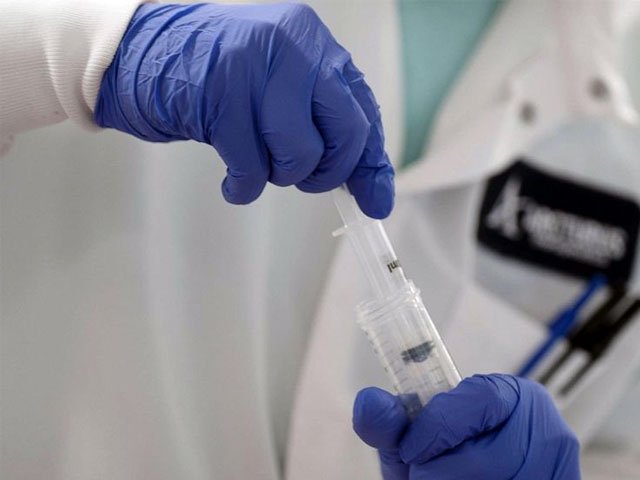
Passive immunisation trials to be carried out at NIVCD
Initial plasma therapy trials have shown 80% success rate
KARACHI: Following preliminary reports of the clinical trials of passive immunisation at various hospitals across the province, the National Institute of Cardiovascular Disease (NIVCD) has become one of six institutes chosen to carry out further tests by the Sindh government on Saturday.
An initial report was sent to the Sindh Health Department on Friday, which revealed that ongoing plasma therapy trials, spearheaded by the National Institute of Blood Disease (NIBD), had achieved an 80 per cent success rate in curing Covid-19 patients.
The Sindh government has, so far, permitted six government teaching hospitals in the province to carry out these clinical trials in collaboration with the NIBD. These hospitals include Dr Ruth Pfau Civil Hospital Karachi, Jinnah Postgraduate Medical Centre, Shaheed Benazirabad Peoples University of Medical and Health Sciences for Women, Sukkur Ghulam Muhammad Mahar Medical College and the NICVD.
Tales of survivor: What two weeks in Karachi’s largest isolation centre look like
These clinical trials, which were based on three patients chosen from across the nation, were initially approved by the Drug Authority of Pakistan on April 9.
The trials are being conducted under the supervision of NIBD chairperson and dean Dr Tahir Shamsi, while the assistant investigators include Lahore University of Health Science vice chancellor Prof Dr Javed Akram and Liaquat University of Medical and Health Sciences vice chancellor Prof Dr Bekha Ram. Meanwhile, NIBD’s Prof Dr Arshi Naz is the national focal person for the trials.
The passive immunisation trials have also been registered with the World Health Organisation and the United States National Institute of Health.















COMMENTS
Comments are moderated and generally will be posted if they are on-topic and not abusive.
For more information, please see our Comments FAQ